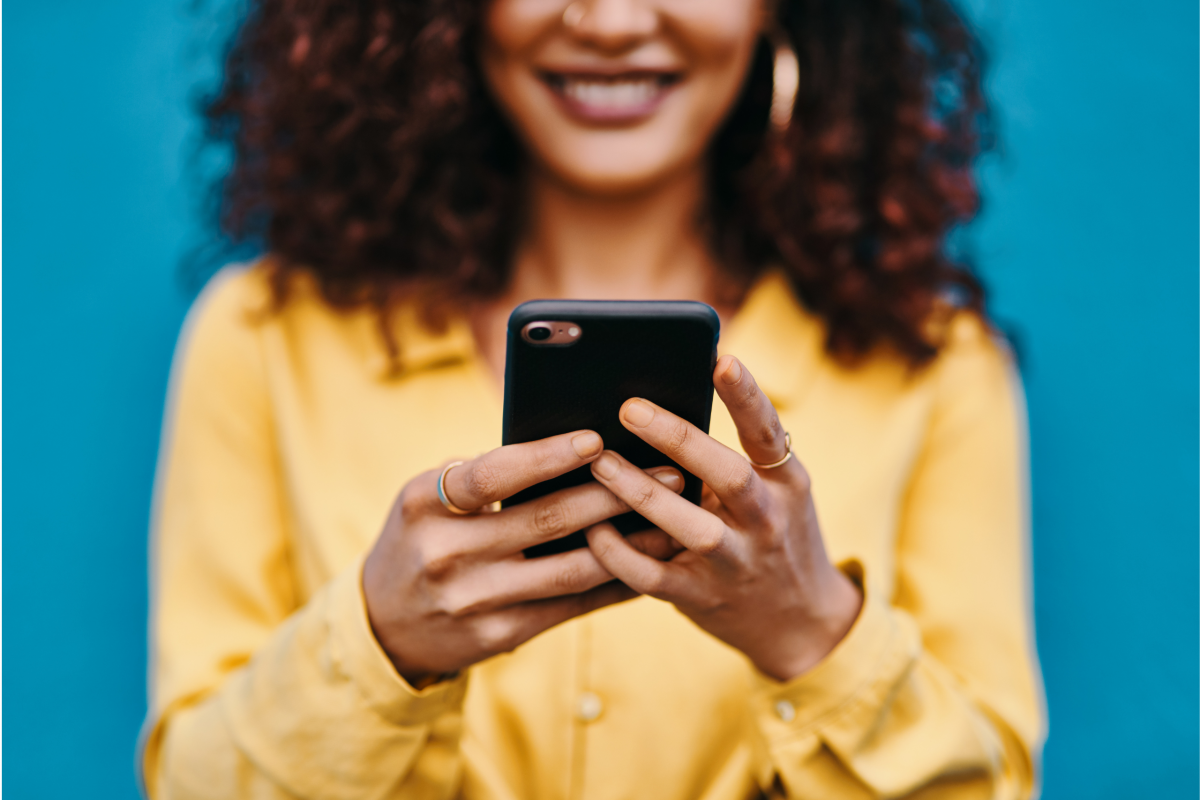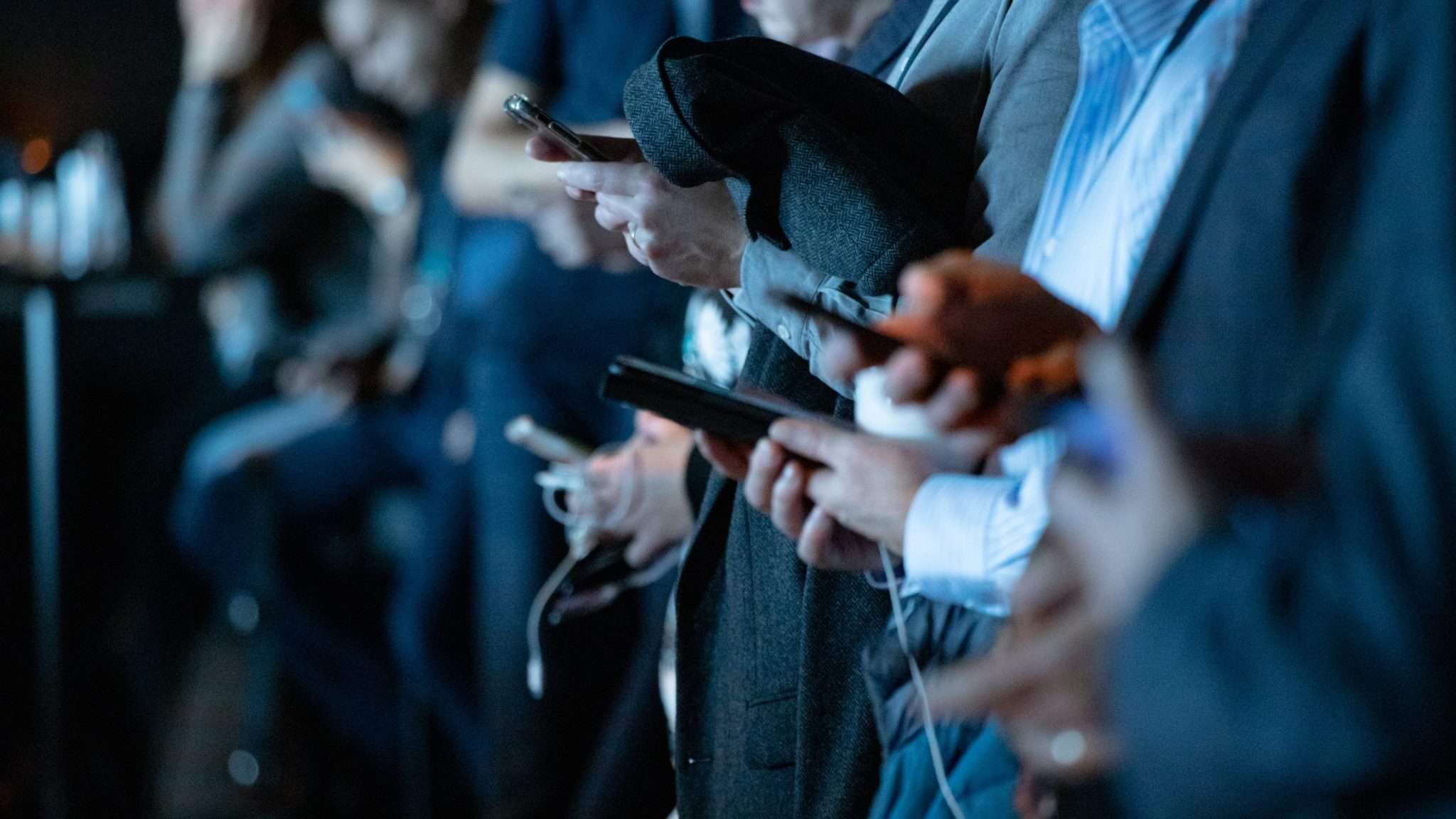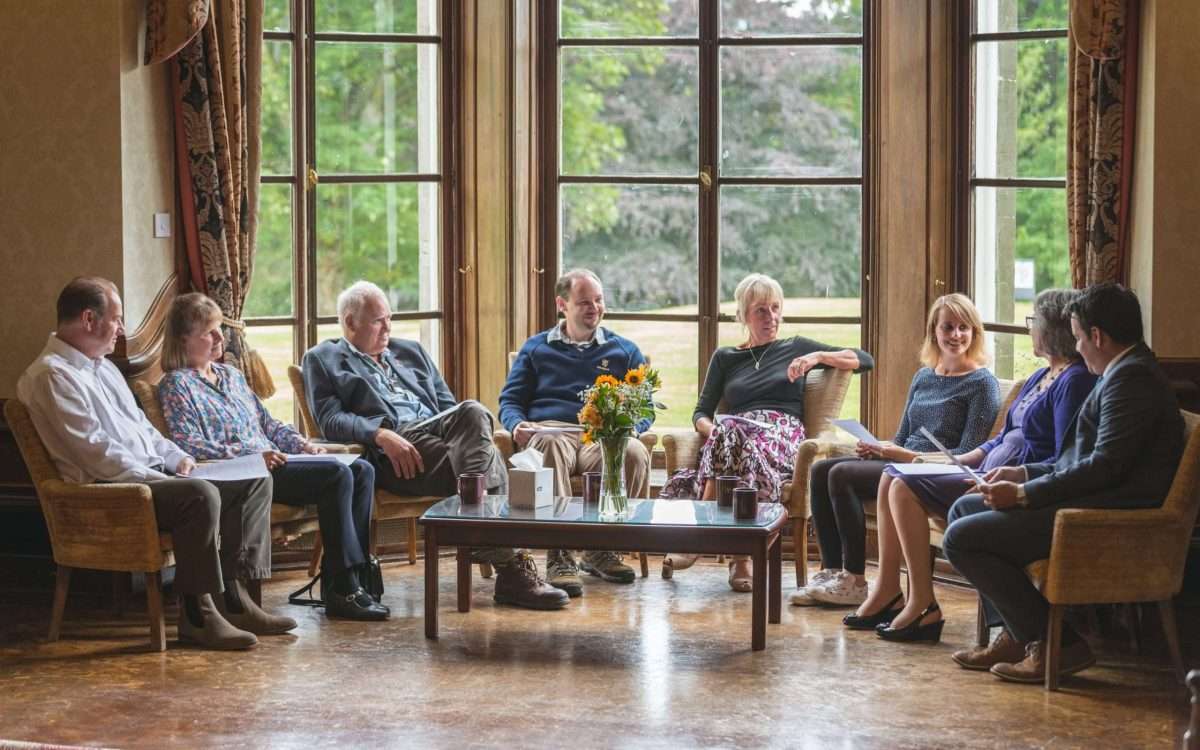
Social Media Addiction – The Impact
What is Social Media Addiction?
Social media addiction is a behavioural addiction in which a person becomes reliant on social media to distract them from difficult emotions and induce positive feelings, despite the negative consequences they may experience as a result of their excessive use.
This form of addiction is relatively new, as social media has only existed for the last few decades. It can also be challenging to determine if your use is normal or excessive, as frequent technology use has become so commonplace today.
There are currently 3.1 billion social media users worldwide, with the average person spending almost two hours a day on their phone. It’s estimated that of that 3.1 billion, 210 million people suffer from an internet or social media addiction.

Download Our Brochure
The Pros and Cons of Social Media Use
There are both positives and negatives to engaging with social media. Today, many people use it to find information and stay in touch with loved ones. Conversely, however, many aspects of social media can negatively impact you over time. Eventually, this can even affect your brain chemistry and how you interact with other people.
The Pros of Social Media
One of the significant benefits of social media is that it offers a faster way to connect with more people. So whether you’re live-streaming an exercise class or chatting with a friend via a messaging app, social media gives you more ways to communicate and connect with others.
Social media also offers ways for like-minded people to find one another and build relationships. For example, there are hobby groups on Facebook and popular hashtags for niche topics on Twitter that help people with the same interests find each other and create online communities.
In today’s world, many argue that social media plays a vital role in building connections between people and keeping those connections strong. It offers everything from professional networking to crowdsourcing ideas, sharing news, and playing online games together. However, this all-encompassing power of social media also contributes to its downsides.
The Cons of Social Media
While social media connects us, it also has the potential to distract us, exhaust us, and overstimulate our brains. All of these cons can even contribute to social media addiction: when someone finds it difficult to control their social media use.
Unfortunately, social media is shown to decrease productivity and well-being. While catching a break from daily responsibilities by scrolling through your feed may feel good in the moment, it ultimately makes us feel mentally exhausted and burnt out.
Social media can also be dangerous because it often only presents users with aspirational content that, over time, can make them incorrectly perceive your life as being ‘less than’ the lives of others. In fact, one study found that people who used Facebook more often had poorer self-esteem, largely induced by greater exposure to social comparisons on the platform.
Over time, excessive screen time can make you feel isolated or lonely. Multiple studies have found that social media use can contribute to anxiety and depression. While relatively new, it’s for this reason that social media addiction is potentially dangerous—especially for young people.

Seek Help Today
What Causes Social Media Addiction?
Sometimes, people use social media to fill a gap they sense in their life. For example, they might feel lonely, stressed, or unsatisfied, but social media offers a sense of distraction and relief in all these cases.
In some ways, social media is designed to make us addicted. While using it can feel harmless and fun, your time online has a significant impact on your brain. When you log on and start engaging with social media, your brain releases the feel-good chemical dopamine.
When your brain experiences this rise in dopamine each time you use social media, it begins to identify it as a rewarding activity. But each dopamine rush from social media use is fleeting, meaning you have to use it more and more to feel the same sense of pleasure again. Naturally, this makes you want to increase your screen time again, continuing the cycle.
This is how psychological dependence on social media builds over time, which often leads to addiction. Unfortunately, this cycle is one you’ll see mirrored in other addictions like alcohol and drugs.
Free Confidential Addiction Assessment
Making that first step in seeking help can be very difficult, our team is here to help you.
Signs You May Be Addicted to Social Media
While many people use social media habitually, addiction is not nearly as common. If you think you (or someone you know) may be addicted to social media, consider the following signs:
- Having urges to use social media that you can’t control
- Using social media to forget about personal problems
- Negative impacts of social media use on your work or personal life
- Using social media during other activities, like driving, eating, or spending time with loved ones
- Finding it difficult to stop or reduce your social media use
- Becoming reliant on social media to cope with your problems or feel happy and satisfied
- Thinking about social media constantly and needing to log on at every opportunity
What Is Considered Excessive Social Media Use?
The more you use social media, the more likely it is that you’ll incur adverse effects on your mental and emotional health. For example, multiple studies have found a link between heavy social media use and a higher risk for depression, anxiety, and even suicidal ideation.
This is because using social media too often can make you feel lonely and socially excluded. Many people report feeling ‘FOMO,’ or the ‘fear of missing out’ from social media. Seeing other people have fun or attend an event from the other side of the screen can trigger feelings of loneliness and low self-esteem that can eventually lead to more serious mental health conditions.
Using social media excessively can also create feelings of inadequacy about your life or physical appearance. One systematic review of 30 independent studies found that an increase in social media exposure was associated with higher body dissatisfaction and dieting or restricting food in healthy individuals between the ages of 18-30. Using social media too often can also negatively impact your physical health by disrupting your sleep patterns and contributing to lower levels of physical activity.
Additionally, excessive social media use deteriorates our real-life relationships. While at first, we may use it to connect with others, social media actually makes us feel more disconnected than ever. Ultimately, social media addiction keeps our attention on our devices rather than on the people around us, contributing to lower-quality interpersonal connections in real life.

Social Media Addiction Treatment
It can be hard to determine if you’re struggling with social media addiction. With how common social media use is today, it’s often seen as normal to have habits of use similar to those that qualify as addictive behaviours. But if your relationship with social media is hindering your quality of life, and impacting your relationships or responsibilities, it may be time to seek help.
At Castle Craig, we know that treating addiction is not a one-size-fits-all process. We understand how behavioural addictions work, and we use the latest neuroscience research to guide our evidence-based treatment programme. We offer every patient a custom, structured plan of treatment to help them overcome their social media addiction in a supportive and caring environment.
Treatment for behavioural addictions like social media addiction includes cognitive behavioural therapy (CBT) to target specific causes of your addiction and prevent future relapse, as well as group therapy so you can process your healing journey with people going through the same experience as you. By the time you finish treatment at Castle Craig, you’ll have access to a variety of therapeutic skills and tools, such as:
- Impulse control
- Problem-solving skills
- Relapse prevention techniques
- Holistic therapy aids for mind, body, and spirit
- New, healthy dietary and fitness habits
- 12-Step fellowship
- Strong support networks that last a lifetime
If you think you or someone you know may be addicted to social media, call our team today. They can explain treatment options for social media addiction, as well as answer any questions you might have.

Compassion & Respect
Frequently Asked Questions
Is Social Media Addictive?
Yes, social media can be addictive. It should be noted that at this time, social media addiction is not yet categorically recognised by the Diagnostic and Statistical Manual of Mental Disorders (DSM-5), the leading diagnostic tool for mental health conditions. However, many healthcare professionals clearly see that social media has the potential to addict its users, and social media addiction is being increasingly studied as more people struggle with problematic use.
Why Is Social Media Addictive?
Social media can become addictive because of the way it impacts your brain’s dopamine reward system. Just like with addictive substances like alcohol or drugs, engaging with social media creates a spike in dopamine, which makes you feel a sense of short-lived euphoria.
Over time, each time you use social media and receive that small rush, your brain begins to associate the activity with the reward. As you become psychologically dependent on social media for dopamine, you may begin to notice more addictive behaviours.
How Can I Stop Social Media Addiction?
If you’re worried you may be addicted to social media, it may be time to enlist the support of a professional and get an evaluation. Social media addiction is a type of behavioural addiction, which is best treated through a personalised programme. Contact our admissions team today to learn more about how we can help.
How Can Castle Craig Help?
Who will I speak to when I call Castle Craig?
When you call you will reach our Help Centre team who will give you all the information you need to help you decide whether to choose treatment at Castle Craig. If you decide that you would like to have a free screening assessment you will be asked a series of questions to build up a picture of your medical and drug use history as well as any mental health issues you are facing. If you decide you want to proceed with treatment you will be put in touch with our admissions case managers who will guide you through the admissions process.
How long is the rehab programme?
Residential rehab treatment starts at 4 weeks and can go up to 12+ weeks. Research shows us that the longer you stay in rehab and are part of the residential therapy programme, the longer the likelihood of continued abstinence and stable recovery.
How do I pay for rehab?
One concern we sometimes hear from people is how they will fund their rehab treatment. You can pay for treatment at Castle Craig privately, or through medical insurance, and some people receive funding through the NHS. The cost of rehab varies depending on what kind of accommodation you choose.
What happens at the end of my treatment?
Castle Craig thoroughly prepares patients before departure by creating a personalised continuing care plan which is formulated following discussions with the medical and therapeutic team. We offer an online aftercare programme which runs for 24 weeks after leaving treatment, in order to ensure a smooth transition back into your everyday life. Patients leaving treatment automatically join our Recovery Club where they can stay connected via our annual reunion, events, online workshops and recovery newsletters.